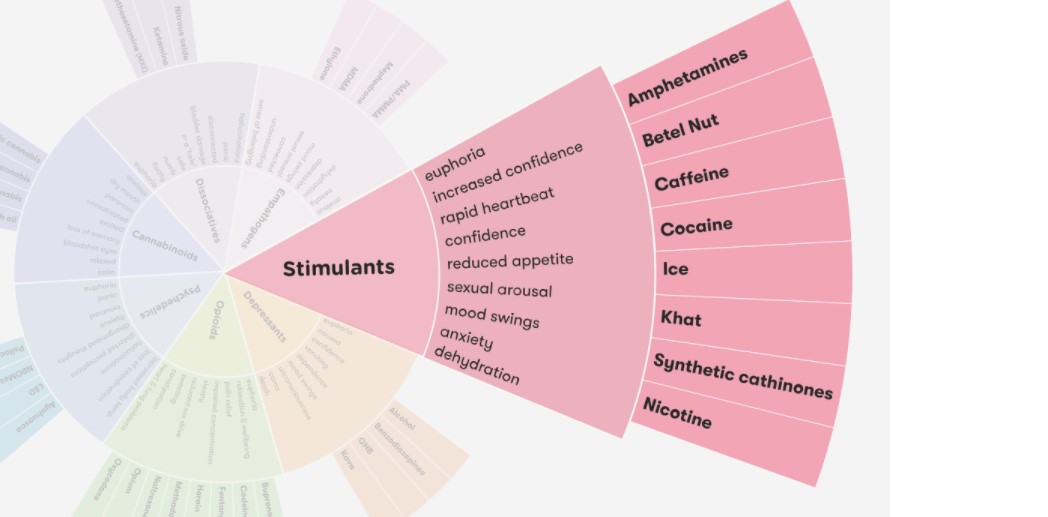As a child, I could not bear the smell or taste of the coffee. Over the years and sleepless nights with two kids, my fondness for coffee developed and so did a "shameless" addiction for a fine coffee brew.
Over the past few years, clinically, I have learnt that some people are susceptible to the benefits, and also the side effects of caffeine.
Unfortunately, I think I may be one of those.
Whilst, I am not aware of any such tests for caffeine sensitivity, the reality is that whilst I love the taste, my body feels better when I do not have caffeine.
So what are the effects of caffeine?
- the feeling of alertness, stimulation.
- excitability
- increases body temperature
- may decrease the risk of type 2diabetes *
The effects of caffeine can take effect within 5 minutes and can last up to 12 hours. After all, caffeine is a drug in the stimulants family, along with many others that we probably don't want a drink of choice to be affiliated with.

What are the side effects of caffeine?
- acts as a diuretic
- increases anxiety
- sleeplessness
- irritability
- muscle tremor
- fatigue
- increased heart rate
- increases breathing rate
- may reduce bladder control
- excess may cause seizures
- can cause sinus and similar allergies
When I was competing in triathlons, the belief amongst the sporting community for many years was that caffeine increased performance.
It was thought that caffeine improved muscle function and anaerobic (endurance) performance. Afterall, the use of high dose caffeine is a banned supplement/drug in most professional sports.
A low dose is still allowed and many competitors are using caffeine shots.
The effects of performance can be related back to the general benefits and the ability of caffeine to mask the effects of fatigue. Recent research questions the anaerobic benefits to muscle function. For performance benefits, a low dose of 1-3mg/kg (body weight) is suggested. Previous higher levels are now not encouraged.
What is the safe level of caffeine intake?
Caffeine is a drug. According to most of the official drug advisory boards, there is no safe level of caffeine.
Instead, many agencies outline a recommended maximum intake of 400mg per day (approx 2-3 cups of single-shot coffee)
In a study of 2000 people, it showed that anxiety was increased in kids at a level of 3mg caffeine. In adults, this was 210mg per day.
It should be remembered that caffeine is not just in coffee. Most energy drink and chocolate-based drinks will have caffeine. Exposure to children should be highly controlled.
Overdoes on caffeine
Every year in NSW, the ambulance service will attend approx 50 calls for caffeine overdose as a result of energy drinks. At high doses, caffeine can be fatal.
Several years ago, I treated a person with unique nerve symptoms. At the time, we were exploring a diagnosis with their General Practitioner and Neurologist. All tests and scans came back normal. It was not until I quizzed about lifestyle and diet that we identified that this person was consuming more than 12 cups of coffee a day. The plan was to test the theory of a condition called caffeine toxicity and reduce their intake. After a few weeks, the numbness and MS-like symptoms disappeared. Caffeine toxicity can appear with an intake exceeding 500mg per day.
It should be noted that caffeine and alcohol should not be combined- The Australian Drug and Alcohol Foundation state:
"Caffeine + alcohol: enormous strain on the body, and can mask some effects of alcohol such as falling asleep, leading to drinking more and risk-taking behaviour." There go the espresso martinis.
Caffeine and healing
Studies have shown that caffeine may delay initial bone healing, but bone strength long term will not be affected.
Some studies look at epithelial/skin healing. These too show there may be some delay in initial healing rate with the intake of caffeine.
Withdrawal from caffeine
Withdrawal from any medication or drug has its side effects. The side effects of caffeine will usually last 2-4 days.
Symptoms can include:
- drowsiness
- headache
- flue like symptoms
- difficulty concentrating
- depressed mood
So after hearing this, should you stop drinking coffee. The answer is if you like coffee then like all good things, consume it in moderation.
When you are searching for the extra cup, ask your self whether you do need it. Try a glass of water, a cup of non-caffeinated herbal tea, and even just a minute of deep breathing or fresh air to pep yourself up.
Also consult your doctor if you suspect that caffeine may be playing a part in chronic issues such as anxiety, sinusitis, skin issues, heart palpitations, as some people may be more genetically sensitised to caffeine.
FACT SHEET - https://cdn.adf.org.au/media/documents/Caffeine-drug-facts.pdf

